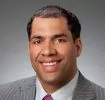New Hampshire has doubled the caps on energy that both residential and commercial customer-generators of rooftop solar can sell back to the grid, raising the cap from 50 MW to 100 MW. The governor signed H.B. 1116, which was introduced this past March, into law on May 2, 2016.
Net metering programs allow homeowners and other solar customers to sell excess power they generate back to the electrical grid in exchange for a credit. Each New Hampshire utility has a cap on the amount of large-scale projects that can receive credits in their area. Eversource Energy, a company which bills itself as New England's largest energy delivery company, announced in January that it had reached the state regulated limit on the amount of customer generation under New Hampshire's net metering laws.
"Lifting the cap on net metering is essential to the continued success of New Hampshire's solar industry, and I am proud to sign this bipartisan bill so that our clean energy industry can continue to grow and thrive," said New Hampshire's Governor, Maggie Hassan, in a statement released concurrently with the execution of the bill.
The new law also mandates that, within 3 weeks of enactment, the New Hampshire Public Utilities Commission (NHPUC) must initiate proceedings to develop new alternative net metering tariffs, which may include other regulatory mechanisms and tariffs for customer-generators, and determine whether and to what extent such tariffs should be limited in their availability within each electric distribution utility's service territory. NHPUC will have ten months to review net metering and develop a new tariff.
Additional information regarding net metering in New Hampshire can be found here and here, and a copy of the bill that was signed into law can be found here.
The content of this article is intended to provide a general guide to the subject matter. Specialist advice should be sought about your specific circumstances.




